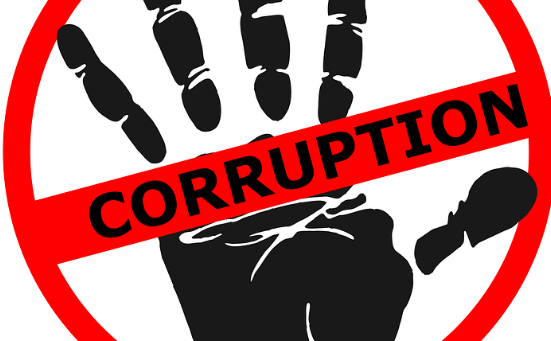
Georgia Urged to Further Fight Corruption on 20th Anniversary of UN Convention Against Corruption
Today marks the 20th anniversary of the adoption of the UN Convention against Corruption, and is also the International Anti-Corruption Day. The Head of the EU Delegation, Ambassador Paweł Herczyński, made an address to mark the occasion, saying that the EU Commission’s historic recommendation to grant Georgia candidate status recognizes Georgia’s progress in the fight against corruption, but that more needs to be done. The same message was the echoed by the watchdog Transparency International-Georgia in its statement on the occasion.
Address by EU Ambassador to Georgia
Ambassador Paweł Herczyński noted that the establishment of an Anti-corruption Agency and the development of an Action Plan for de-oligarchization are part of the way forward, but stressed that strengthening the fight against corruption is a crucial component of the EU enlargement process and one of the nine steps on Georgia’s road to EU membership.
The Head of the EU Delegation to Georgia stressed that corruption undermines democratic institutions and the rule of law, slows down economic development and contributes to instability. “The European Union stands side by side with Georgia to ensure that rule of law principles and standards are respected and complied with,” concluded the Ambassador Herczyński.
Statement by Transparency International-Georgia
The watchdog Transparency International-Georgia also reacted with a statement on the occasion of the International Anti-corruption Day.
The statement notes that Georgia is known worldwide for its successful anti-corruption reforms, which were implemented years ago. As a result, low-level corruption has been eliminated. The organization notes, however, that high-level corruption in Georgia has remained a challenge.
The statement expresses regret that “it was not possible to establish an anti-corruption system that would effectively deal with elite corruption. Establishing a strong anti-corruption system is especially important for a country where more and more questions are being asked about state capture and kleptocracy.”
The watchdog stresses the necessity of progress in the fight against corruption noting in in this context that the need to carry out anti-corruption reforms in Georgia has been emphasized both in the 12 Priorities named by the European Commission in June 2022, and in the 2023 EU enlargement report on Georgia.
“We believe that the implementation of these recommendations is the best way and opportunity for Georgia to take real steps against corruption” says the statement calling on the Georgian government to take the following steps based on the requirements of the European Commission:
- Build a track record of effective investigations into high-level alleged corruption cases;
- Ensure the independence, impartiality and efficiency of the Anti-Corruption Bureau and implement related recommendations of the Venice Commission. In particular, asset declarations should be audited against the legitimate income and investigations should take place in case of unexplained differences;
- Develop and adopt an anti-corruption strategy and action plan, ensuring it is comprehensively implemented through realistic timelines, adequate funding and monitoring mechanisms
- Repeal the decision of February 2023 to withdraw from the OECD anti-corruption monitoring network for Eastern Europe and Central Asia (OECD/CAN) and fully implement recommendations from the previous rounds;
- Update and implement the action plan on de-oligarchization according to the recommendations of the Venice Commission so that political, judicial and economic spheres are freed from large-scale vested interests and their influence;
- Adopt a broader reform of the judiciary, in line with Venice Commission recommendations. In particular, establish a system of extraordinary integrity checks, with the involvement of international experts with a decisive role in the process, for candidates and persons currently appointed to all leading positions in the judiciary, in particular the HCJ, the Supreme Court and court presidents;
- Change the procedure for appointing the Prosecutor General to be elected by a qualified majority instead of a simple majority in the Parliament.
Also Read:
- 03/11/2023 – TI-Georgia: Problem of High Level Corruption Remains Severe
- 01/09/2023 – The Anti-Corruption Bureau Takes Over the Parties’ Financial Audit
- 21/04/2023 – TI Georgia Identifies Shortcomings in the Law on the Fight against Corruption
- 19/04/2023 – NGOs Accuse “Georgian Dream” of Obstructing Anti-Corruption Efforts in Judiciary
- 05/04/2023 – BREAKING: US Department of State Sanctions Four Georgian Judges for “Significant” Corruption
This post is also available in: ქართული Русский